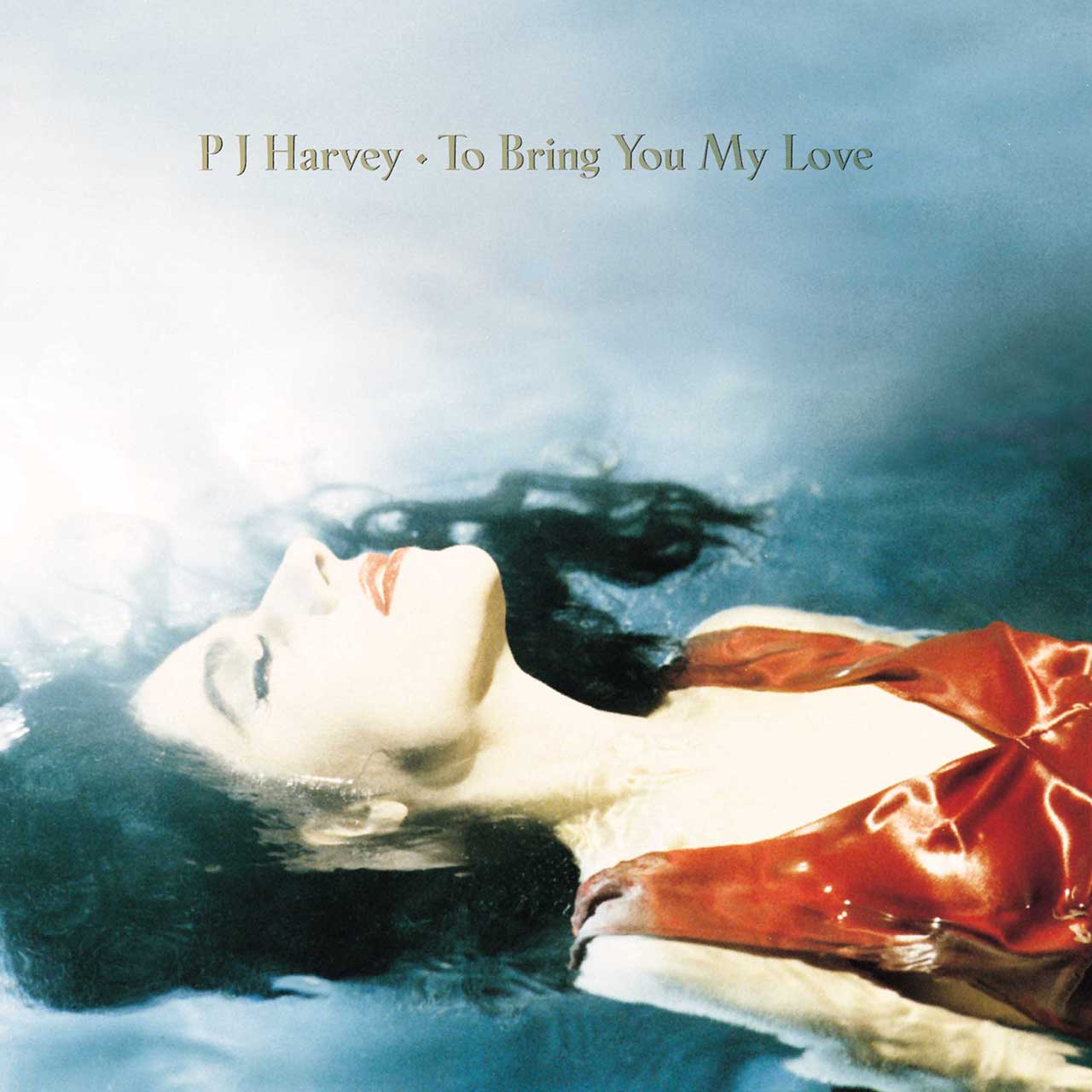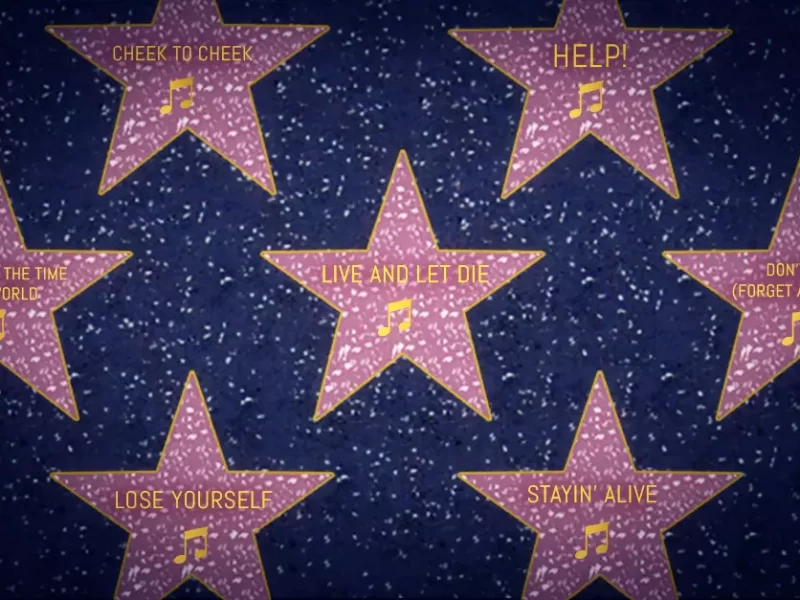Having taken 1994 off to regroup, buy a house in the Somerset countryside, and write her third album, PJ Harvey reappeared in February 1995, a changed character. And “character” is the word. To Bring You My Love had her acting out a series of roles, from the homicidal mother of “Down By The Water” to the B-movie heroine facing down a monsoon on “Meet Ze Monsta.”
On the cracked blues-folk number “C’mon Billy,” she was a single mother, imploring the child’s father to meet the son he’s never seen. In the video for that one (which VH1 refused to air because of its darkness) she forces Billy to stay by tying him to her bed.
The momentum stoked by her first two albums (Dry and Rid Of Me) guaranteed that this one would be a commercial and cultural success, which it was: one million copies sold worldwide, a No.2 American single (“Down By The Water,” by far the freakiest hit single of the year) and a raft of accolades, including Grammy and Mercury Music Prize nominations. Reviews were also uniformly rapturous – in a year dominated by Britpop and the Macarena, Harvey had made an outlier that was, even by her standards, something else.
In its fearlessness and imagination, To Bring You My Love was proof that PJ Harvey was built to last. Comparisons to giants like Patti Smith and her much-admired Captain Beefheart, were apt. Moreover, she’d split with her band at the end of 1993, and was now a solo artist. “I just wanted the experience of playing with different people, and didn’t want to feel tied in any way,” she explained in an interview on French TV.
The most significant benefit of going solo was being in charge of all creative decision-making. While U2 producer Flood might have helmed the recording sessions, the buck stopped with Harvey. One of her decisions was to open the album with the growling title track, whose first line, “I was born in the desert,” happened to be identical to the first line on Beefheart’s debut album.
A quarter of a century later, To Bring You My Love hasn’t aged, because its themes are ageless. Religion, sin, and nature are the touchstones; Jesus is called upon, and the devil often replies. The mothers, lovers, and voodoo priestesses in the songs would fit into any century. If any element ties the production to the 90s, it’s “Teclo,” a minor-chord creeper that could have come from the Twin Peaks soundtrack, but that’s a one-off.
Harvey’s innate theatricality was ramped up on To Bring You My Love, helped by the infusion of fresh blood – consisting of John Parish, an old pal from her first band Automatic Dlamini, and Nick Cave collaborator Mick Harvey – that helped steer the album in a more experimental direction.
While the album is pretty heavygoing at times, Harvey engineered in some light relief, too. There’s a moment in the swamp-rocking “Meet Ze Monsta” when she bellows in faux-fear at the approaching “big black monsoon.” It’s even funnier in the demo – released with other previously unheard versions as a separate album – because rather than bellow she emits a campy shriek. On the spaghetti-Western-inspired closing track, “The Dancer,” her used-and-abandoned character tries to entice her man back by squealing “Ah! AH! Aaah!”
In a way, she never hit such wild heights again, but she’d already proved herself and didn’t need to.



